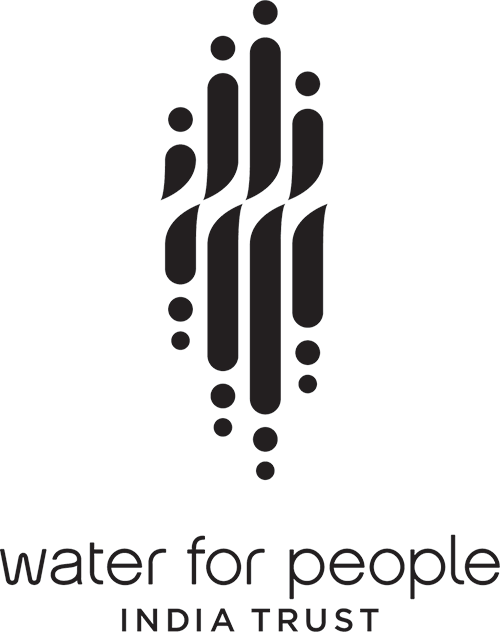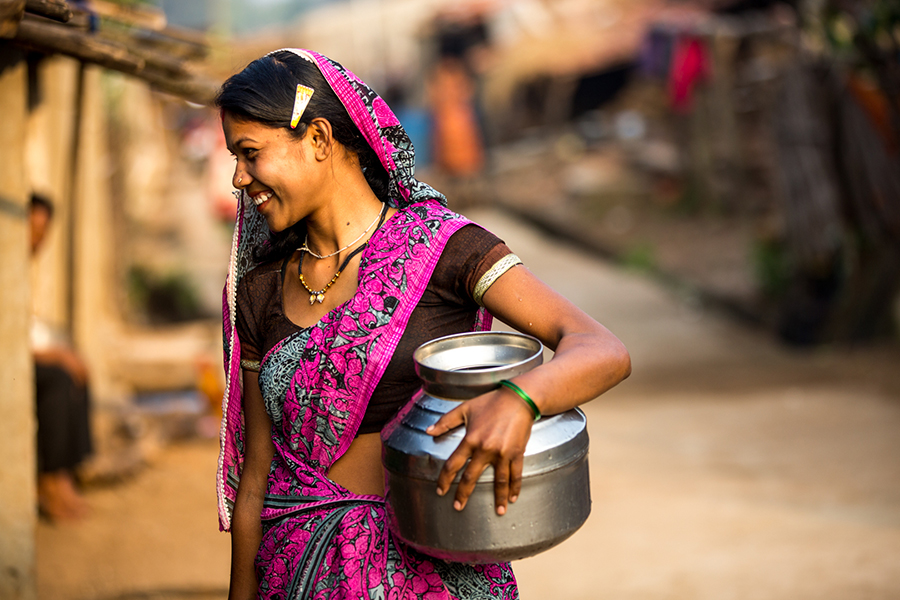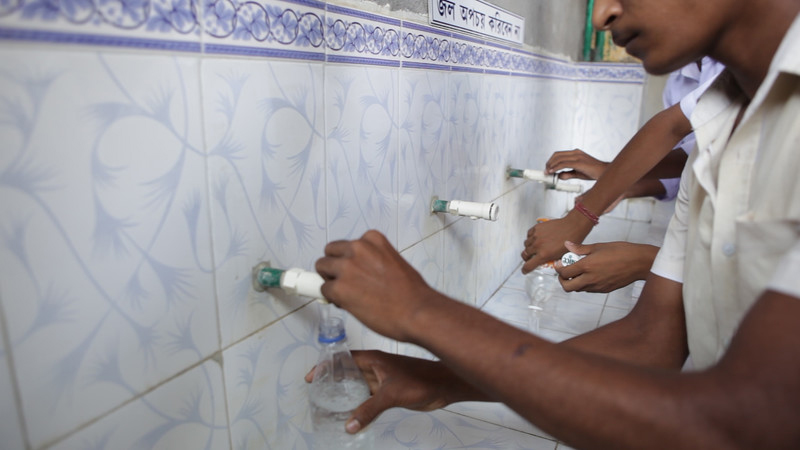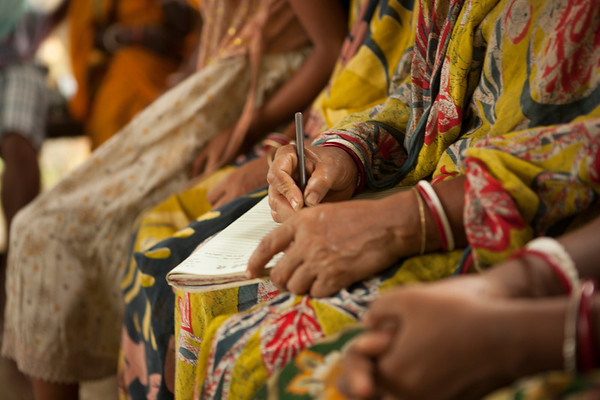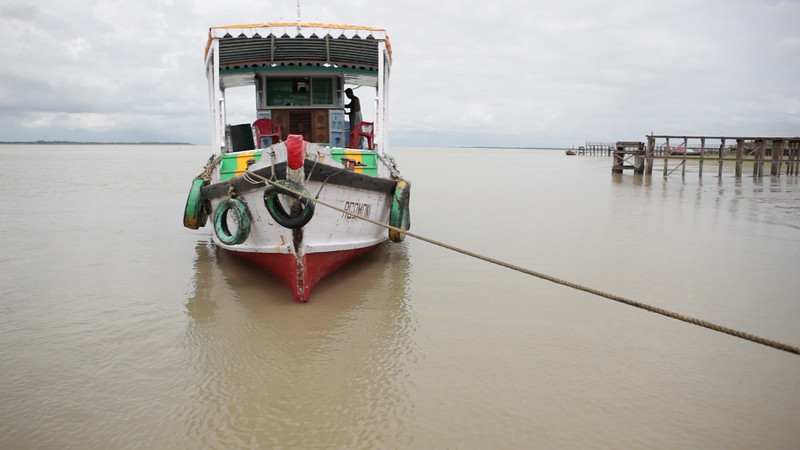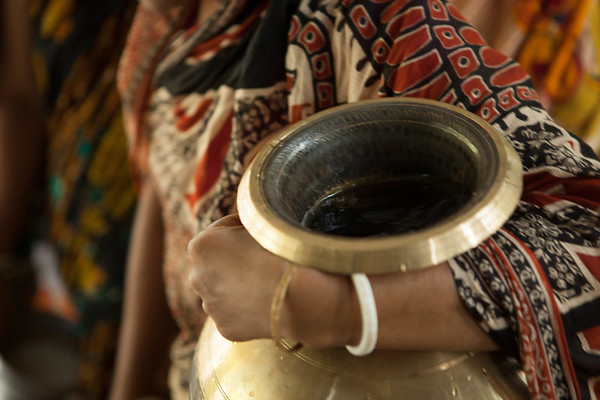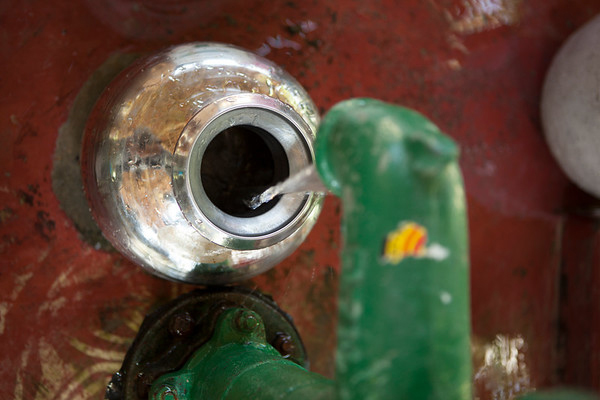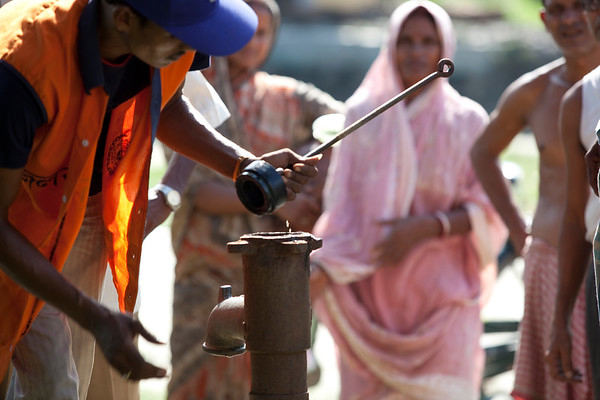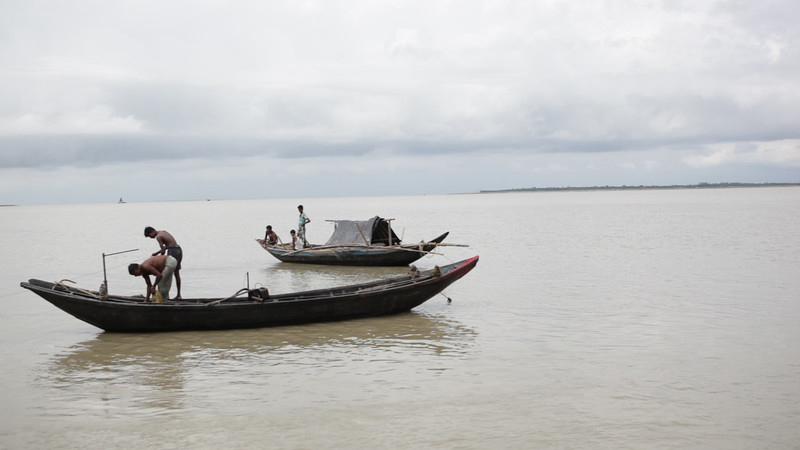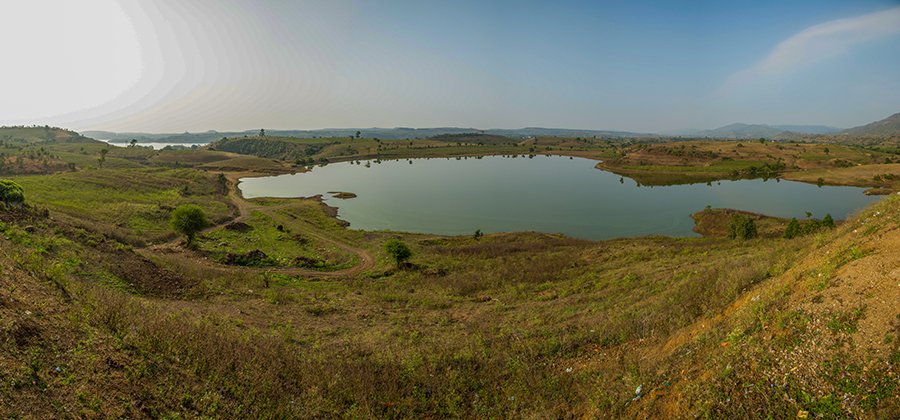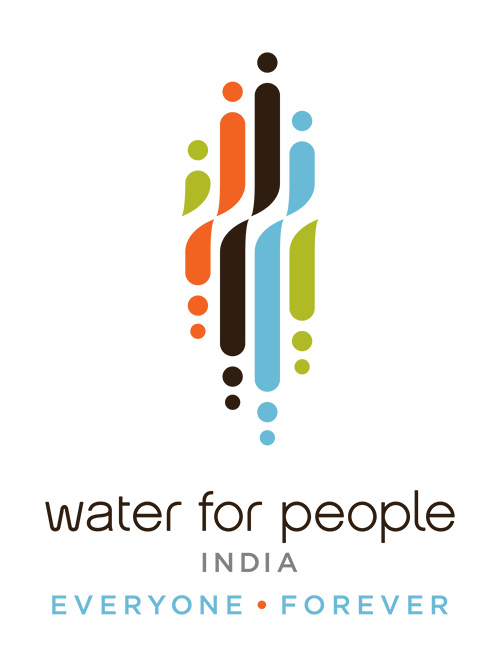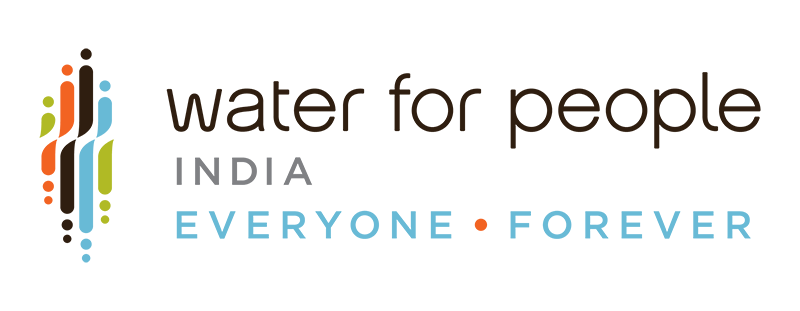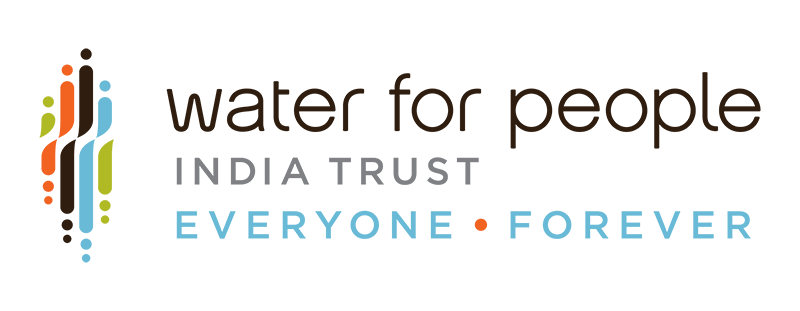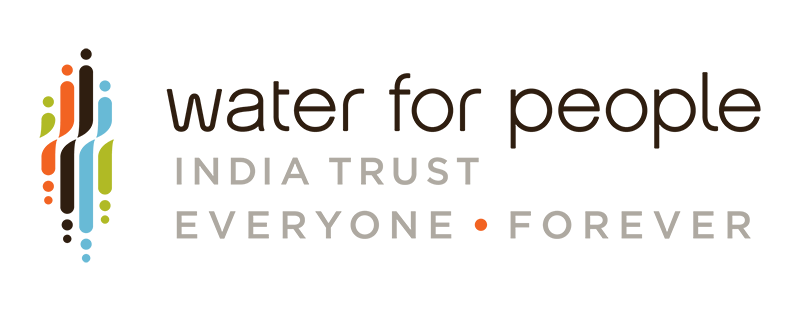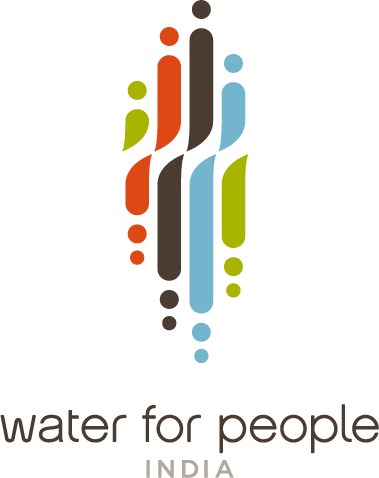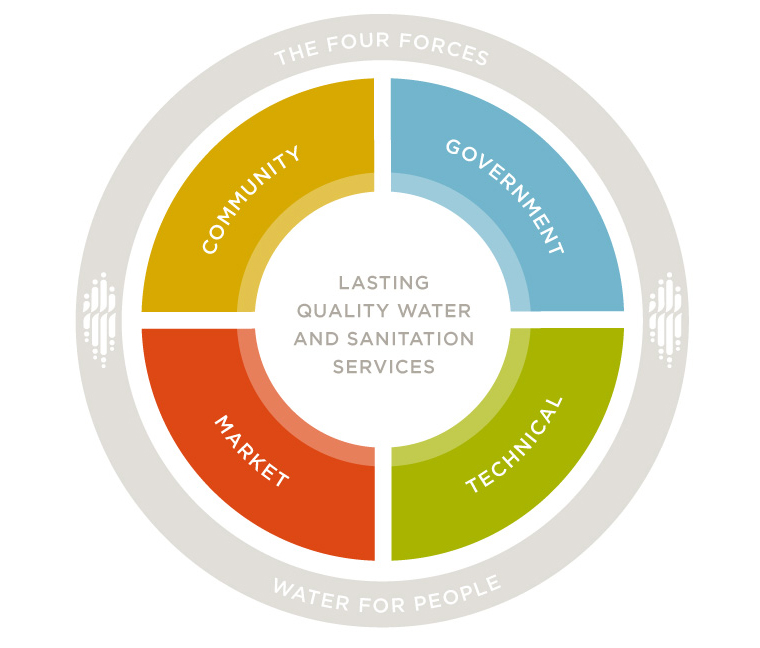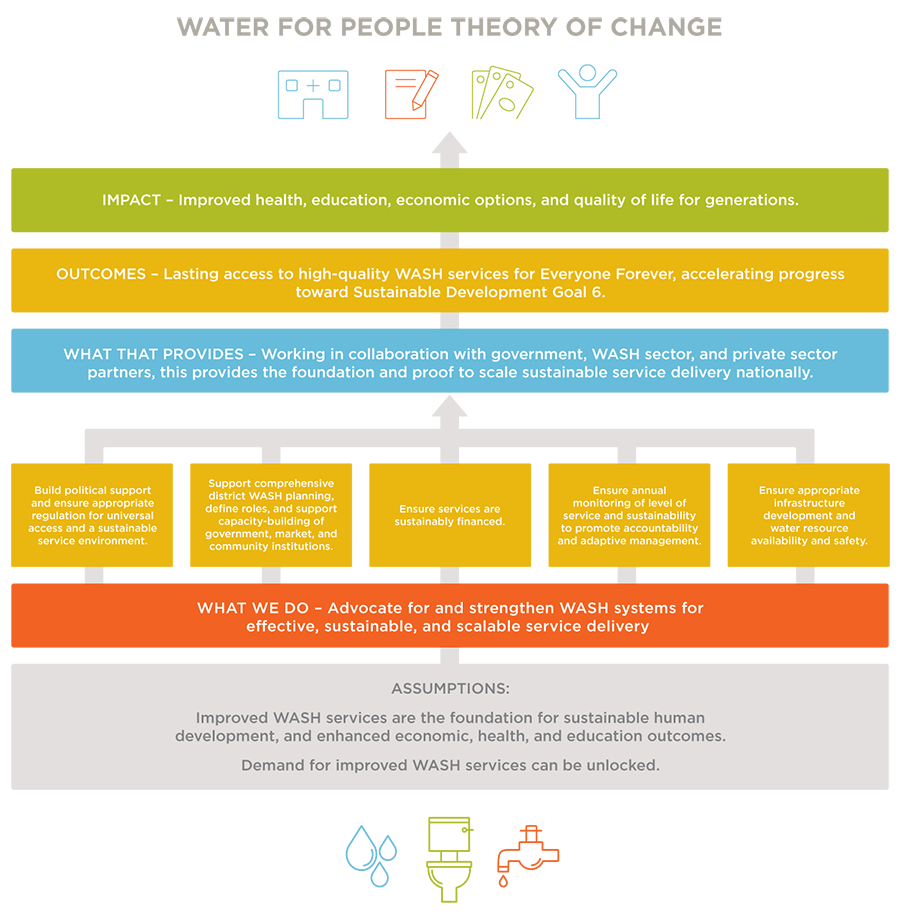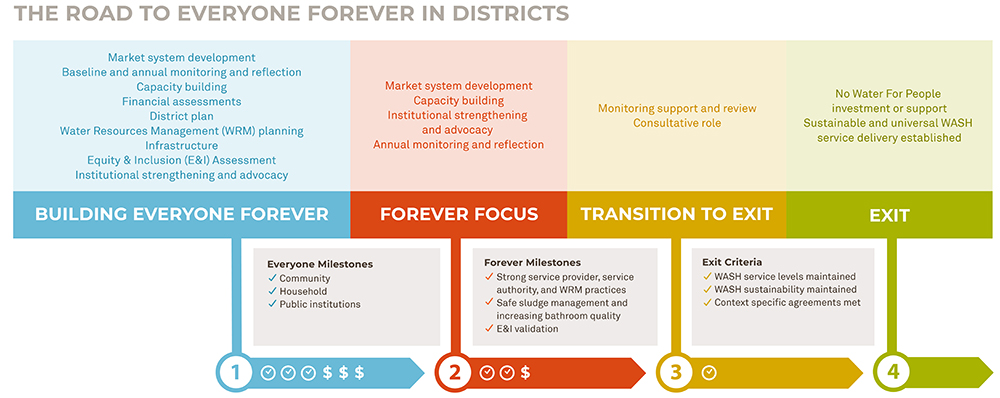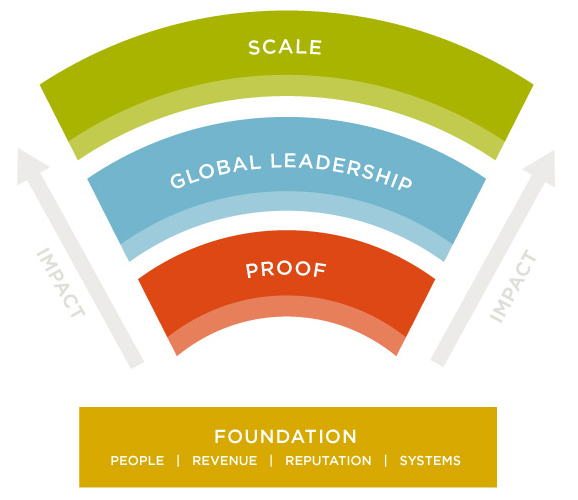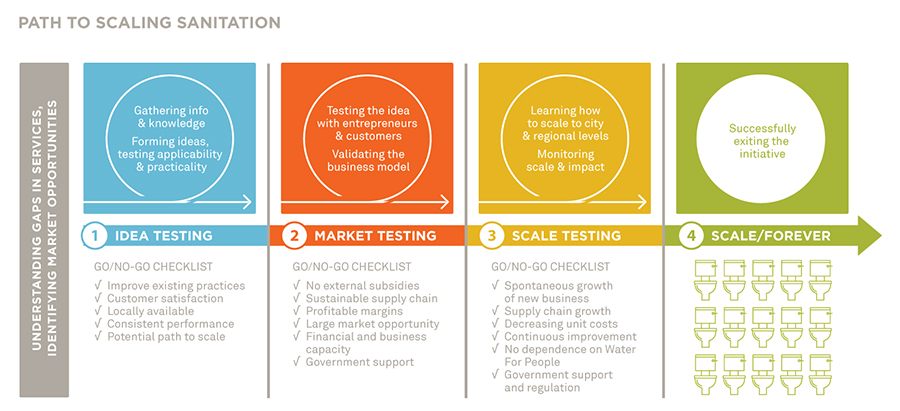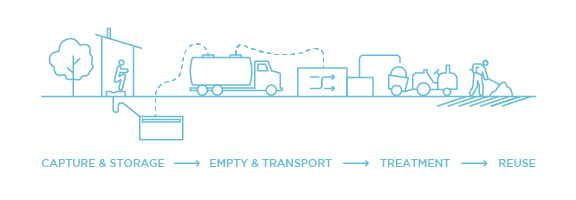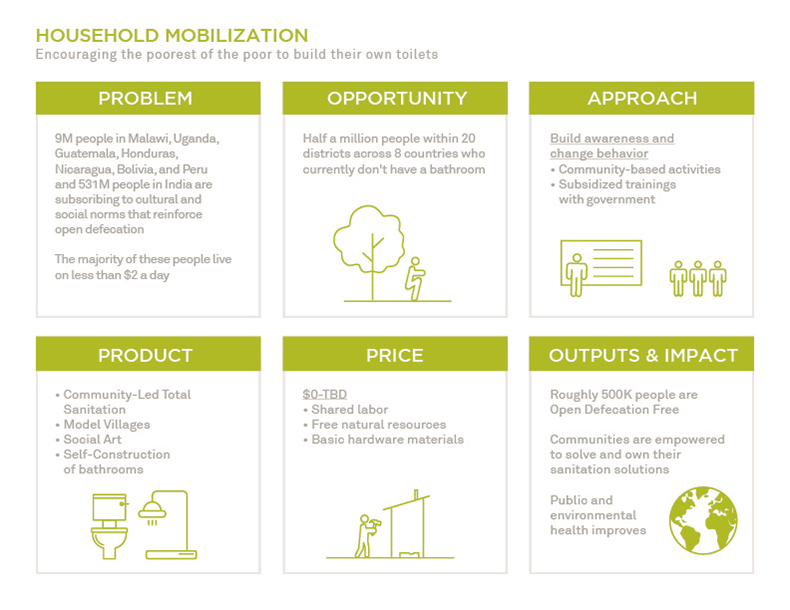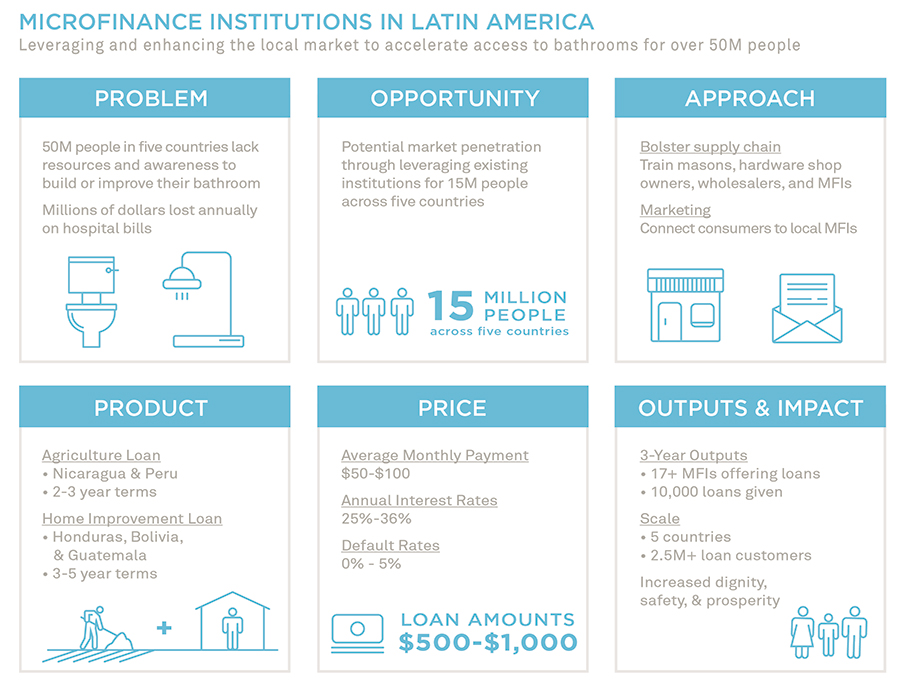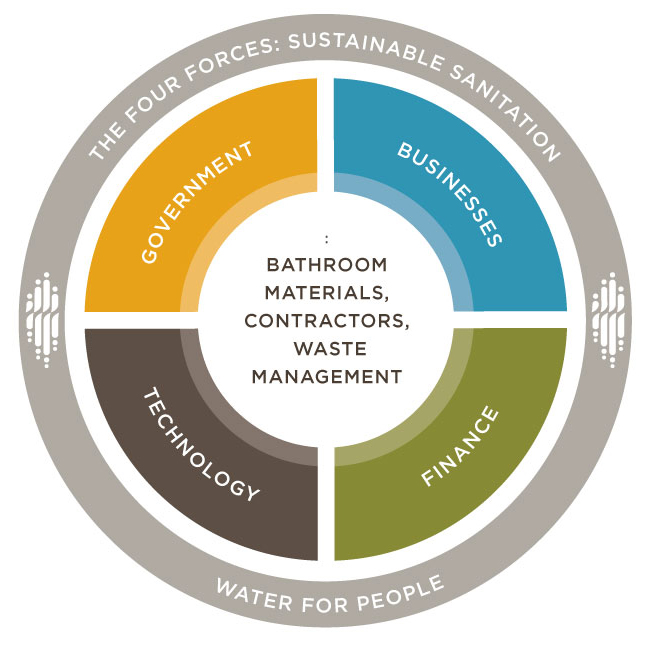The Water User Committee in Anandapur village (India) consists of 12 women volunteers who have been trained on issues of water quality, budgeting and more.
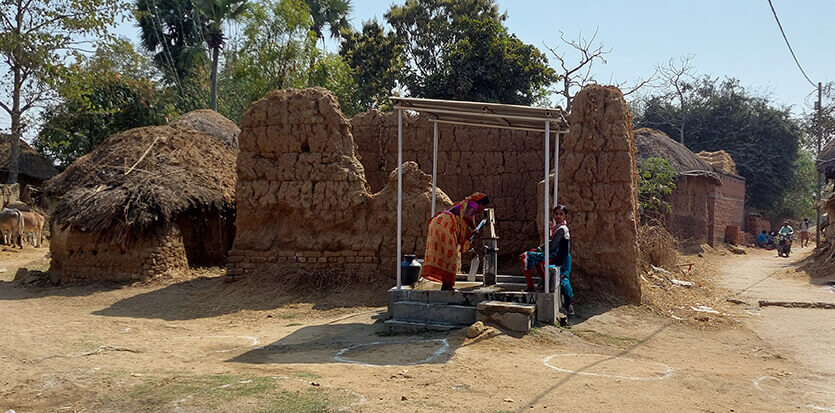
Above image caption: Physical distancing circles at the water point
“We would have led ordinary lives if we had not chosen to do what we do now in our village”, said Sonamoni Bagdi, when asked about how her life has changed on becoming a member of the Water User Committee (WUC). Sonamoni is a resident of Anandapur village in Khoryasal block, Birbhum district of West Bengal, India. The Anandapur Mohila Jol Shomiti (Anandapur Women Water User Committee), formed in 2019, is a product of Water For People’s (WFP) efforts towards building resilient communities for sustainable WASH services in the district.
In Anandpur village, all 150 households have a piped water connection. However, due to irregularity of service, the villagers rely on five public tube wells, installed by WFP with co-financing from Gram Panchayat and the community. The WUC’s main role is to manage these five community water points. Comprising of 12 women volunteers, the WUC members have been trained on issues of water quality, water budgeting, formation of village water and sanitation committees, and more.
The WUC ensures that all households have equal access to the water points. Thus, with the support of the local government, it makes sure that each household gets to use the waterpoint once during the morning and once in the afternoon. The WUC also ensures that periodical testing of the water point water quality is done and shares the result with the community. During the lean season, the WUC collects a fixed tariff from the households to pool finances for exigencies such as major repairs, haulage for the water points, and the likes. The WUC meets once in a month to discuss the challenges of water in the village and take stock of the finances.
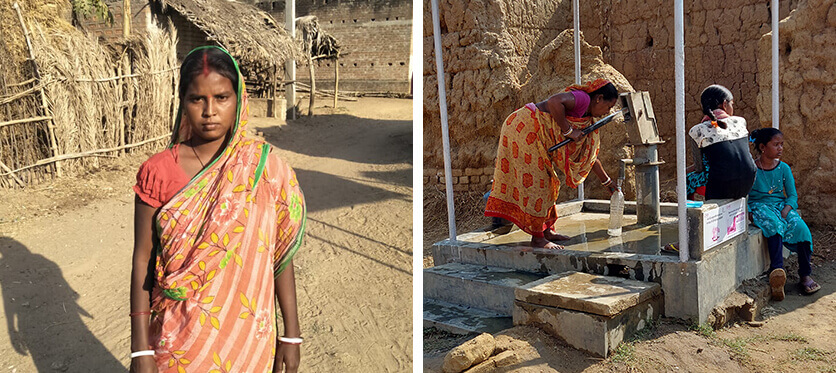
The important role played by the WUC became more prominent during the COVID-19 outbreak. The Block administration collaborated with the WUC to sensitise the community and build awareness on hand hygiene. The change in behaviour resulted in increased usage of water. The WUC, thus, increased water collection for each household from twice to thrice in a day, keeping in mind the physical distancing protocol. Further, in order to prioritise water needs, the WUC began community sensitisation, particularly with women, on storage and re-use of grey water for livestock, kitchen garden etc. The WUC also negotiated with the Block Development Officer to reduce the turn-around time for repair of the water points during the summer.
“We all like the water points installed in the village; we will work harder to preserve these forever,” Ranjana, one of the villagers, said.
The Anadapur village women’s WUC, working towards sustainable and equitable access to water, has enriched village life as well as the lives of the women in the committee. Being part of the WUC has made the women more confident, given them a say in household decision making, and a sense of agency. The importance of their work in the committee is recognised by their spouses, who also come forward to offer help by getting spare parts for repair from the nearby town, provide logistical support to the mechanics, who sometimes travel long distances to complete the job. All this resonates with the opening statement by Sonamoni, how her ordinary life has become extraordinary and precious like water.







